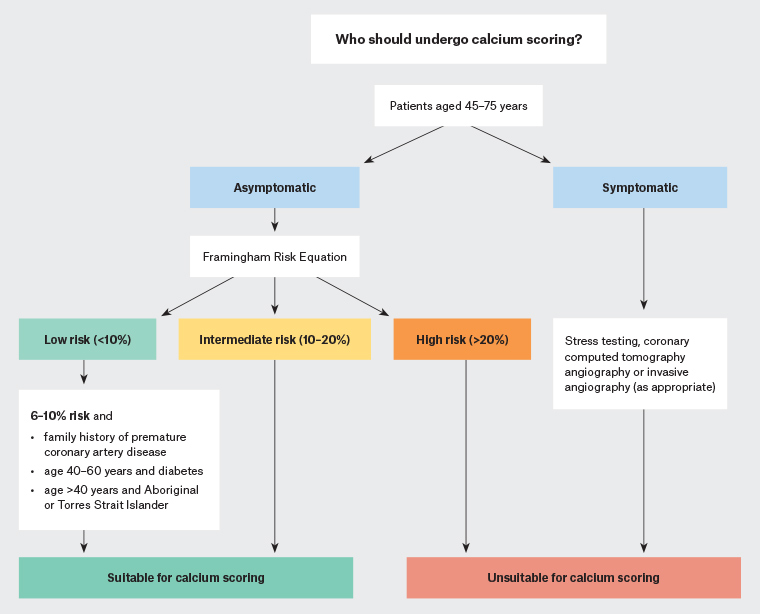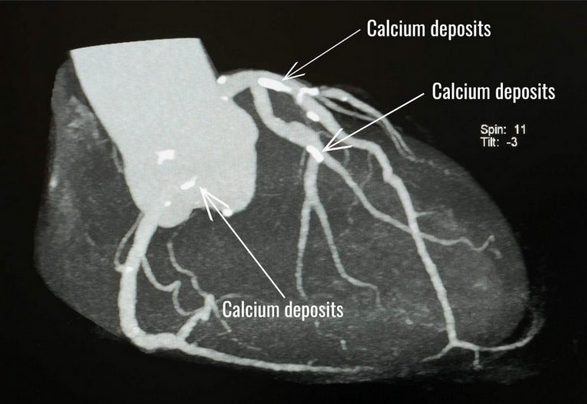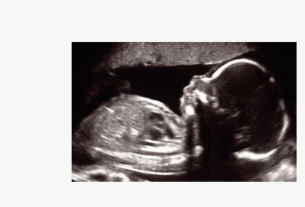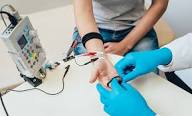Coronary CT Calcium Score
A long list of Payel Sen’s paternal relatives had heart disease, and several had undergone major surgeries. So when she hit her mid-50s and saw her cholesterol levels creeping up after menopause, she said, “I didn’t want to take a chance.”
A cardiologist told Payel that, based on factors including age, sex, cholesterol and blood pressure, she faced a moderate risk of a major cardiac event, like a heart attack, in the next 10 years.
Doctors typically counsel such patients about the importance of diet and exercise. But Payel, now 54, a dancer by proffession, didn’t have much room for improvement. She already was a serious runner, and, though she says, “I sometime deviated once in a while,” her diet was basically healthy. Still, her efforts to lose weight didn’t lower her cholesterol.
Her doctor explained that a CT Calcium scoring could provide a more precise estimate of her risk of atherosclerotic heart disease. This brief and painless CT scan would indicate whether the fatty deposits called plaque were developing in the arteries leading to her heart.When plaque ruptures, it can cause clots that block blood flow and trigger heart attacks. The scan would help determine whether Payel would benefit from taking a statin, which could reduce plaque and prevent more from forming.
Also known as a Cardiac CT calcium score, it’s one of the newer—and more accurate—assessment tools being used. “A coronary calcium scan isn’t for everyone, but it’s the finest way for those who are uncertain about their heart disease risk to make better decisions about treatment and medications,” says Michael Blaha, M.D., M.P.H., director of clinical research at the Ciccarone Center for the Prevention of Heart Disease at Johns Hopkins.
Coronary artery calcium test is used by more people every year nowadays says Dr. Michael Blaha, co-director of the preventive cardiology program at Johns Hopkins University.The number of calcium scans quadrupled from 2006 to 2017, his research team found. And Google searches for related terms have risen even more sharply.
Patients with a CAC score of zero — no calcification — have a lower risk than their initial assessments indicate and aren’t candidates for cholesterol-lowering drugs. But Payel’s score was in the 50s — not high but not negligible.“It was the first indication of what was going on inside my arteries,” she says.
Though guidelines vary, cardiologists generally offer statins to people with calcium scores over zero and suggest higher-intensity statins when scores exceed 100. At over 300, patients’ risks approach those of people who’ve already had heart attacks. They might need even more aggressive treatment.
This is the way calcium testing is supposed to work. It’s not a screening test for everyone. It’s intended only for selected asymptomatic patients, 40 to 75 years old, who have never had a heart attack or a stroke and aren’t already on cholesterol drugs.
What is Coronary CT Calcium Score
A calcium score is a number from a CT scan that indicates the amount of calcified plaque in your coronary arteries, which is linked to the risk of a heart attack. A score of 0 means no plaque, while higher scores show increasing amounts of plaque and a higher risk of heart attack, with scores over 400 often indicating severe disease and very high risk. The score helps doctors assess coronary artery disease risk and guide preventive treatments, like medication and lifestyle changes.
What Does the Score Mean?
| Table . Interpretation of Coronary CT Calcium Score | ||
| Calcium score | Interpretation | Risk of myocardial infarction/stroke at 10 years |
| 0 | Very low risk | <1% |
| 1–100 | Low risk | <10% |
| 101–400 | Moderate risk | 10–20% |
| 101–400 and >75th percentile | Moderately high risk | 15–20% |
| >400 | High risk | >20% |
- Score of 0: No evidence of plaque buildup.
- 1-100: Mild plaque, indicating mild CAD.
- 101-400: Moderate plaque, indicating moderate CAD and risk.
- Over 400: High accumulation of plaque, indicating severe CAD and a very high risk of a heart attack.
How It Relates to Heart Attack Risk
- Coronary CT Calcium Score(CAC): is the medical term for this buildup of waxy, fatty plaque that can narrow or block coronary arteries. The more calcium there is, the more plaque has accumulated, which increases the likelihood of a heart attack and stroke. Doctors use the score to help decide if someone needs treatments like cholesterol-lowering medications (statins) to reduce their heart attack risk.
Who Should & Who Shouldn’t Get a Scan?
- People with borderline risk for heart disease who may not have symptoms.
- Individuals between 40 and 70 who have risk factors like a family history of heart disease, high blood pressure, high cholesterol, diabetes, obesity, or a sedentary lifestyle.

What the Score Doesn’t Tell You
- It doesn’t tell you if you have an actual blockage.
- It doesn’t tell you your absolute risk or when a heart attack might happen
Care at North City Diagnostic
If you have concerns about your Heart’s Condition or Risk of Cardiac Attack, you need a team of experts you can trust. Our Cardiologists and Radiologists at North City can help you with CT Coronary Calcium Score.





